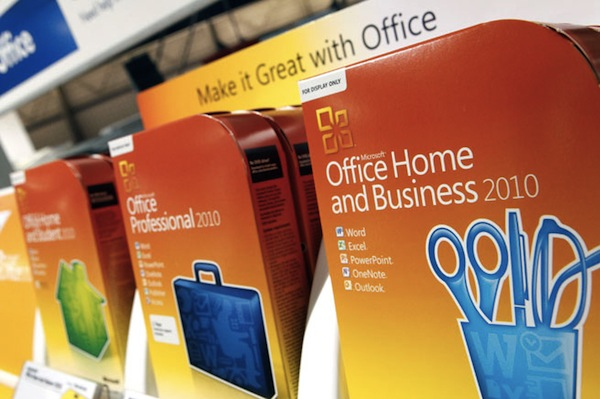Microsoft accounted for one-third of retail software sales in 2010

Yeah, but what about 2011, with the app store craze?
NPD released new US data early today suggesting retail software isn't going away soon. As measured in dollars, Microsoft accounted for one-third of US retail software sales last year. Office 2010 led the company's sales. As previously reported, Student and Home Edition accounts for about 85 percent of Office sales. Office pushed the productivity suite category to a four-year sales high.
More broadly, US retail software sales, excluding PC games, grew 1 percent year over year to $2.42 billion in 2010. While 1 percent might appear to be tepid growth, it compares to 8 percent and 10 percent year-over-year declines in 2008 and 2009, respectively.
Microsoft and four other developers -- Adobe, Apple, Intuit and Symantec -- accounted for 78 percent of retail software sales, up 3 percent from 2009. Business software posted strongest year over year growth (14 percent), followed by imaging and graphics software (10 percent). Sales declined for finance and tax preparation software; both categories suffered from cloud competition. For example, Inuit now offers a comprehensive online suite that competes with some of its software applications.
Sales of security software declined, in part because of free alternatives and also OEM, subscription bundles -- another push to the cloud. AVG and Microsoft are among the developers offering free anti-malware software.
"While industry pundits and commentators continue to forecast the death of retail software, it remains a strong and viable channel for companies wishing to get their products in front of the maximum number of customers," Stephen Baker, NPD's vice president of industry analysis, said in a statement. I'm one of those people predicting change, and there Baker and I disagree. In December, just ahead of Apple's launch of the Mac App Store, I asked: "Should Apple stop selling software in its retail stores?" February and March rumors suggest Apple will soon remove software from its stores. The Mac App Store lets Snow Leopard users purchase software from within the operating system for download.
"While there is no doubt that 2010 saw a number of changes in in-store product distribution that will impact future sales, NPD's research shows that retail storefronts grew faster than ecommerce in 2010," Baker asserted. I wonder. Apple's Mac App Store has got to force some response from Microsoft. What happens should Microsoft open up a real Windows app store?
In a way, Baker tacitly agrees. "Much of this year's revenue increase came as a result of sales of premium products such as Final Cut, Aperture, CS5, and Office," he said in the statement. "However, the lower unit volume potential of these products, even as they increase in revenue importance, remains a major threat to the ongoing maintenance of sufficient shelf space in retail to keep the category viable."
Oh yeah? So if the big-ticket items don't sell enough units to keep shelf space, where should they go? Shall we say to an online app store? I predict that when -- not if -- Adobe, Microsoft and Quark begin selling their major products through the Mac App Store, Apple will no longer have any real reason to carry boxed software in its retail shops. If Apple goes digital, someone has to follow with a real app store for Windows. Surely Baker is right about boxed software continuing to thrive in the short term. But five years from now?
Photo Credit: Microsoft
